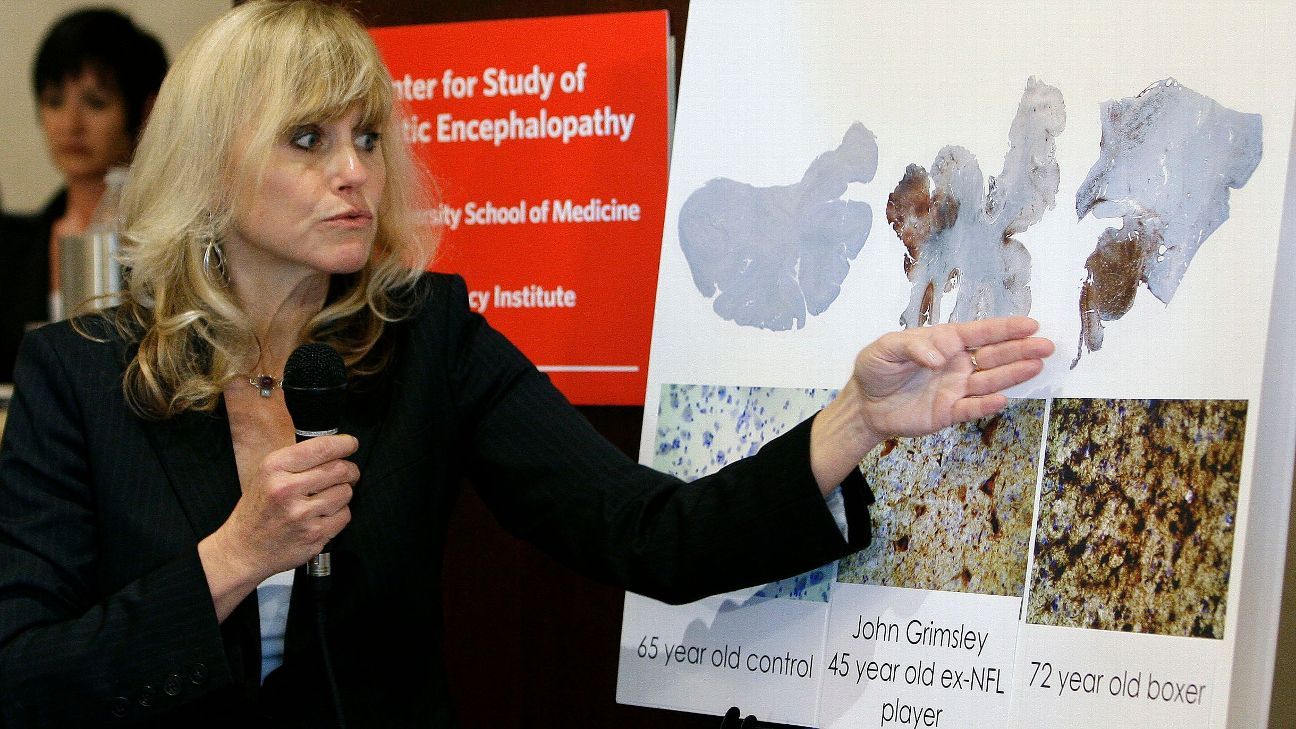Study: CTE in 40% of athletes who died before 30 - 3 minutes read

A new study has diagnosed the degenerative brain disease chronic traumatic encephalopathy (CTE) in more than 40% of youth, high school and college athletes -- primarily football players -- who were exposed to repetitive head impacts from contact sports and died before age 30.
The study was conducted by the Boston University CTE Center and based on an examination of 152 brains that had been donated. BU said the study represents the largest case series on athletes who died young.
"The fact that over 40% of young contact and collision sport athletes in the UNITE brain bank have CTE is remarkable, considering that studies of community brain banks show that fewer than 1% of the general population has CTE," said Dr. Ann McKee, lead author on the study and director of the BU CTE Center.
Editor's Picks2 RelatedHowever, the findings emphasized that "not all contact sport athletes with symptoms have CTE."
Suicide was the most common cause of death in the cohort, although the research revealed no relationship between the cause of death and the presence of CTE. There were also no statistically significant differences in any clinical symptoms between those with CTE and those without. Symptoms such as depression and apathy were reported in nearly 70% of the athletes despite almost 59% of them not having CTE.
The study published Monday in JAMA Neurology drew its findings from a cohort of 152 donors -- 63 of whom were diagnosed with CTE at the time of death. The donors died from 2008 to 2022, and their age at death ranged from 13 to 29. Almost all of the brains studied showed the earliest stages of CTE. Most of the athletes diagnosed with CTE played football as their primary sport, and a smaller number played ice hockey and soccer.
The scientists also diagnosed CTE in the first American woman athlete, an anonymous 28-year-old collegiate soccer player. This adds to the emerging list of women athletes with CTE, after scientists in Australia earlier this year posthumously diagnosed Heather Anderson, a former Australian rules footballer, with the first case of CTE in women's professional sports.
In addition to evaluating the brains, the researchers also conducted online surveys and postmortem interviews with most of the athletes' next of kin to better understand the cognitive symptoms that presented before death. Without a clear association between symptoms and CTE status, the study concluded that young athletes exposed to repetitive head impacts were highly symptomatic irrespective of CTE status, and the causes of symptoms might be related to multiple factors.
Source: ESPN
Powered by NewsAPI.org